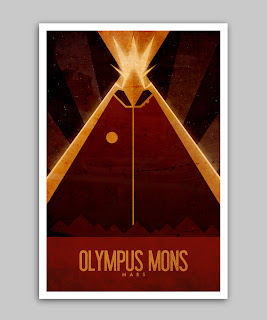"Whatever you do,
Do all to the glory of God."
1 Cor. 10:31
It is similar to the parent who defers the questioning child with the evocation to "go ask" the other parent. Professors who have dedicated their lives to the study of a particular subject are not fond of venturing into unrelated territories. So the student who asks a theological question in economics class is told to ask his theology professor, and the student who asks an economic question in theology class is told to ask his economics professor. The admonishment is laced with the not-so subtle, though common and accepted, language of specialization, privatization, and compartmentalization—namely, stick to the subject at hand and keep these things properly separated.
Professor of theology William Cavanaugh is aware of the academic phenomenon of deflecting such questions, the cultural milieu that encourages compartmentalization, and the natural tendency of students to rebel against it. He sees in students an authentic discomfort with the idea that we need to compartmentalize our lives, a bold awareness that our culturally growing drive to keep politics from theology or theology from finance and religion from law doesn't actually work. "I think they have a very good and real sense," notes Cavanaugh, "that in real life things are not separated: that the way you buy has a lot to do with the way you worship and who you worship and what you worship."(1) Cavanaugh encourages this awareness by commending the kinds of questions that recognize compartmentalization as unlivable, and by doing the historical work that shows this notion of separable entities as a modern, credulous construction in the first place.
Compartmentalization may well be a way of coping with a world that wants to keep the confusion of many religions out of the public square, but it is evident that it is not a very good coping mechanism. Each isolated discipline wants to discuss on some authentic level the good or benefit of all as it pertains to their subjects. And yet they somehow want to bracket any and all questions that might lean too closely toward things of a spiritual nature—purpose, meaning, human nature, morality. While such restrictions might successfully allow us to avoid stepping too closely to religion, in the fancy footwork it takes to do so, we end up sidestepping the actual subject as well.
On the opposite side of these contemporary fences, spirituality is restricted to private realms, personal thoughts, or a single day in the week, and thus becomes far more like one of life's many commodities than an all-encompassing rule of life. Separate from the world of bodies and societies, the world of hearts and souls is not seen as appropriate or even capable of informing our understanding of business or capitalism, the principles behind our daily choices, how we live, what we buy, or what we eat. The presuppositions here are equally destructive of the true identity of the thing we have compartmentalized. Held tightly in such compartments, the Christian way ceases to be a "way" at all.
So what if our categories are wrong? If our compartments merely confuse and obscure, failing to be the coping mechanisms we think they are, will we remove them? And what does life look like without such divisions? What if Christianity is not a category of thought at all, a set of beliefs, or a religion that can be privatized without becoming something else entirely? What if the life of faith is not about what we think or what we do, but who we are? Such a way would exist over and above every category of thought, every compartment and realm.
In fact, long before theology was ushered out of the public square, out of politics, economics, and the sciences, it was considered to be the highest science, the study of the rational Mind behind our own rational minds. It was the discipline that made sense of every other discipline, the subject that united every subject. Such a perspective is inherently foreign to the contemporary mindset. But it cannot be shooed away like a meddling religion or deferred like an unwanted question without dismissing some sense of cohesion—and without dismissing Christ himself. His very life is a refutation of compartmentalized thought, belief, and action. His cross was neither public nor private; it spanned both, and every century following its own.
In dire contrast to the harried and highfalutin rules of compartmentalization, Jesus's rule of life was undivided and down-to-earth, pertaining indivisibly to hearts and souls, bodies and societies. He paid theologically-informed attention to every day and everyday lives, and the institutions, ideologies, and systems that shaped them. He went to his death showing the inseparable nature of the spiritual and the physical, who we are, how we live, and what we believe. Those who follow him to the cross, through Good Friday and each day beyond it, do so similarly.
-- Jill Carattini
(1) William Cavanaugh with Ken Myers, Mars Hill Audio Journal, Volume 95, Jan/Feb 2009.
(2) Richard J. Foster, Prayer: Finding the Heart's True Home (New York: HarperCollins, 1992), 27.



































